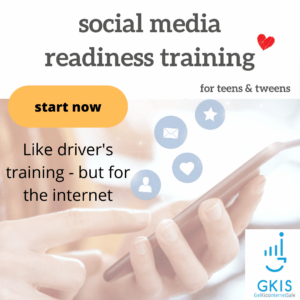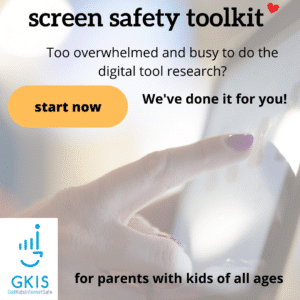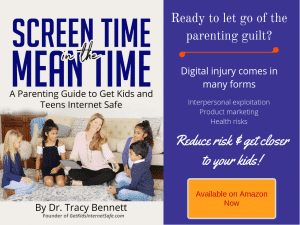Do you find yourself becoming bored or fatigued by your daily intake of social media? Do you feel trapped in a constant cycle of monotony? You may be caught in a filter bubble. Due to the ongoing pandemic, families and children have looked to technology for sources of happiness, news, and leisure. Quarantines have limited social interaction, forcing society to indulge in more screen-time. Not all screen-time is detrimental, but we must acquaint ourselves with the concept of filter bubbles. Today’s article covers what filter bubbles are, the harms of filter bubbles, and how you can keep your family safe from the strings attached to algorithms with the help of our sensible GKIS tips.
What is a “filter bubble” and how are they formed?
Coined by Eli Pariser, a filter bubble is a tailored universe of information built through algorithm filters.[1] Social media algorithms process and gather information (data), with the task of predicting what the user would like to see.[2] Despite the use of free products and services (like Facebook), your family’s personal information (like browsing and buying behaviors) is collected and sold to advertisers (this is how platforms grow). Filter bubbles form through data gathered during your recurring use of social media, apps, and websites. In fact, as you browse through the internet, you are being followed by trackers you pick up from websites that gather this data. The trackers that invisibly follow you as you visit various virtual neighborhoods is referred to as virtual exhaust.
With your personal information, these algorithms can then retarget you by showing you ads about the things you seemed interested in during previous browsing. An example of these algorithms at work includes a story about a girl who was targeted with baby ads before knowing she was pregnant! The young woman did not outright give herself away by looking at cribs or diapers; however, her subscription and purchase history led to data collection that pointed to the direction of pregnancy.[3]
If algorithms could go as far as attempting to predict sensitive information such as pregnancy, imagine the different directions the algorithms will predict with each of your family members. Although we give our permission for marketers to track us by using certain platforms (because we love that free, delicious content), it’s useful to be educated about the ways of marketers. To help you recognize the red flags of marketing so you can teach them to your kids, GKIS offers ways to keep your family internet safe. Take the first step by signing up for our How to Spot Marketing Red Flags Supplement. It’s the perfect addition to our free Connected Family Screen Agreement available at GetKidsInternetSafe.com.
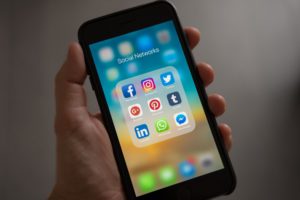
Everyday Examples
Everyday examples of tools that form filter bubbles include Facebook news feeds, Twitter timelines, and any kind of “For You” feature. Because these pages are tailored to your liking (based on personal data), a filter bubble is compiled through media similarities, leading to a customized but limited online experience.
Other examples of tools that form filter bubbles are the checkboxes to “get to know you better” or “Suggested Pages.” I love to indulge in following online influencers that offer fashion and makeup inspiration, but at the same time, I realize that it’s a bubble of advertisements that are trying to get me to swipe my card. These days, almost every influencer post includes a paid promotion. Because we love the convenience of buying off the internet, it reinforces the idea that you can easily shop in the comfort of your own home. You can see where this constant cycle of exposure can be detrimental, not just to the reward system in our brains (instant gratification) but also to our financial stability.
What are the harms of filter bubbles?
Narcissism and Herd Mentality
It has been proposed that filter bubbles may lead to narcissistic tendencies, as the filter bubble ricochets one’s preferences. Narcissism in the digital age includes preoccupation with self-image, which is evident in a filter bubble when your beliefs and opinions are reinforced.[4]
In psychology, the herd mentality is the notion that people tend to make decisions to fit in with the majority. This mentality can be especially harmful in a filter bubble, as your family members may blindly follow an idea or group without considering opposing viewpoints or repercussions of their actions. Sometimes a filter bubble gives the impression of a majority preference when it’s actually just a small part of the overall picture.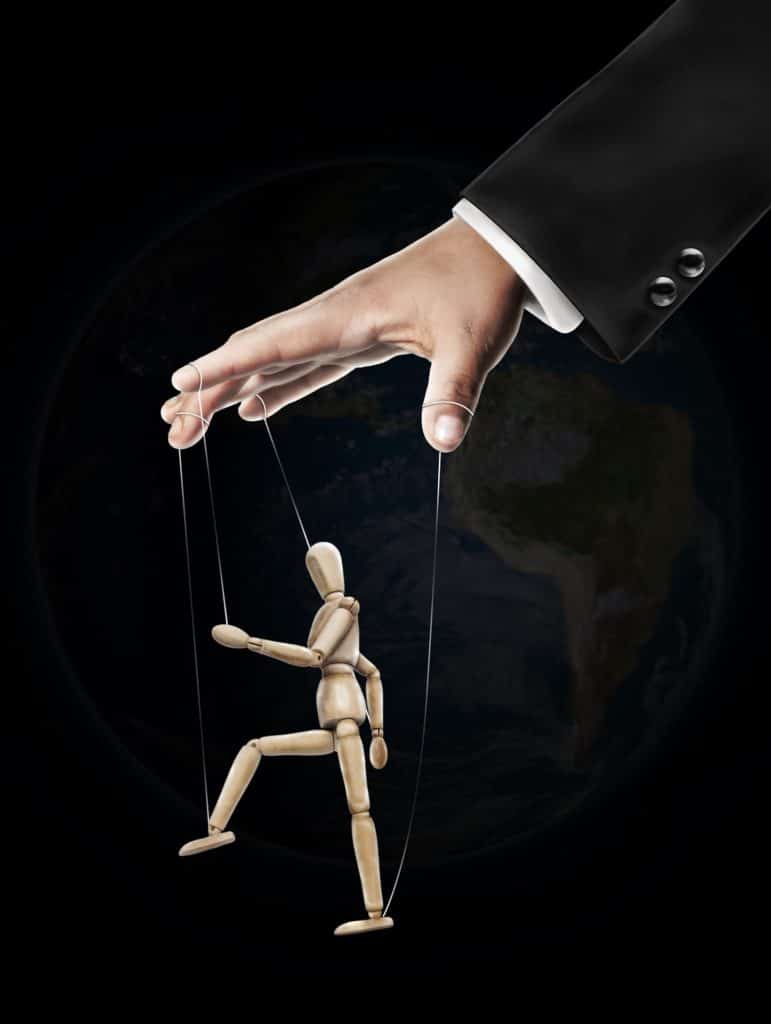
Exposure to Fake News
Searching the internet makes it very easy to fall victim to a confirmation bias, which is the notion that people prefer sources that confirm their beliefs, negating opposing viewpoints. This bias can put you at risk of digital injury by exposing your family to fake news and misinformation, leading you to believe in (and even share) false conclusions about important topics.
Consider the following thought experiment. Imagine disagreeing with someone so much so that you resort to searching the internet for backup. You might feel tempted to click on the first source that confirms your stance, and then a second, and so on… As you search for information, algorithms are tailoring your search results to your search history, filtering out beneficial information that would be useful to know to form an unbiased opinion.
Voting is a prime example of this dilemma, as politics in this digital age are nearly impossible to evade. Filter bubbles have not only intensified our stance on the current presidential election between President Trump and former Vice President Biden, but they have also affected the way we engage in politics with family members, friends, and even strangers.
No matter where you stand, it is clear to see the effects of confirmation bias on political polarization. Polarized opinions and interactions are just a few of many examples of digital injury and toxic online behavior. To learn more about the repercussions and psychology behind misinformation, check out this in-depth GKIS article about fake news.
Isolation and Narrow-Mindedness
Eli Pariser suggests that we can think of the filter bubble as a “party of one.”[5] Without exposure to information that will challenge our way of thinking, our outlook on the world around us will inevitably become one-dimensional.[6] Dr. Tracy Bennett, founder of GetKidsInternetSafe, says she sees evidence of this emotional isolation every day in practice. By feeling more and more confident in their belief systems, many of us increasingly feel frustrated and angry. As we seek sources to increase our confidence, we fall into a cycle of fear, confirmation, anger, and isolation. “Worst case scenario,” she says, “we give up and sink into depression and apathy.”
Hate Groups and Radicalization
Kids can fall into filter bubbles just like adults can. To keep kids from accessing hate group and cult information and potentially becoming radicalized, parents need to access parental controls like those offered in our GKIS Screen Safety Toolkit. To learn more about how these harmful communities could be targeting your family, check out this GKIS article about hate groups and cults.
 Thanks to CSUCI intern Kaylen Sanchez for researching filter bubbles for this GKIS article.
Thanks to CSUCI intern Kaylen Sanchez for researching filter bubbles for this GKIS article.
I’m the mom psychologist who will help you GetKidsInternetSafe.
Onward to More Awesome Parenting,
Tracy S. Bennett, Ph.D.
Mom, Clinical Psychologist, CSUCI Adjunct Faculty
GetKidsInternetSafe.com
Photos Credits
Photo by Tracy Le Blanc from Pexels
Works Cited
[1] TEDtalksDirector [TED] (2011, May 2) Beware online “filter bubbles” | Eli Pariser [Video File]. Retrieved from: https://youtu.be/B8ofWFx525s
[2] Orlowski, J. (Director) (2020).The Social Dilemma [Documentary] Netflix. https://www.netflix.com/title/81254224
[3] Hill, K. (2016, March 31). How Target Figured Out A Teen Girl Was Pregnant Before Her Father Did. Retrieved from https://www.forbes.com/sites/kashmirhill/2012/02/16/how-target-figured-out-a-teen-girl-was-pregnant-before-her-father-did/#30b9ac0e6668
[4] MacDonald, P. (2014). Narcissism in the modern world. Psychodynamic Practice: Individuals, Groups and Organisations, 20(2), 144–153. https://doi-org.summit.csuci.edu/10.1080/14753634.2014.894225
[5] TEDtalksDirector [TED] (2011, May 2) Beware online “filter bubbles” | Eli Pariser [Video File]. Retrieved from: https://youtu.be/B8ofWFx525s
[6] GCFLearnFree.org (2018, Nov 29) How Filter Bubbles Isolate You [Video File]. Retrieved from: https://youtu.be/pT-k1kDIRnw




